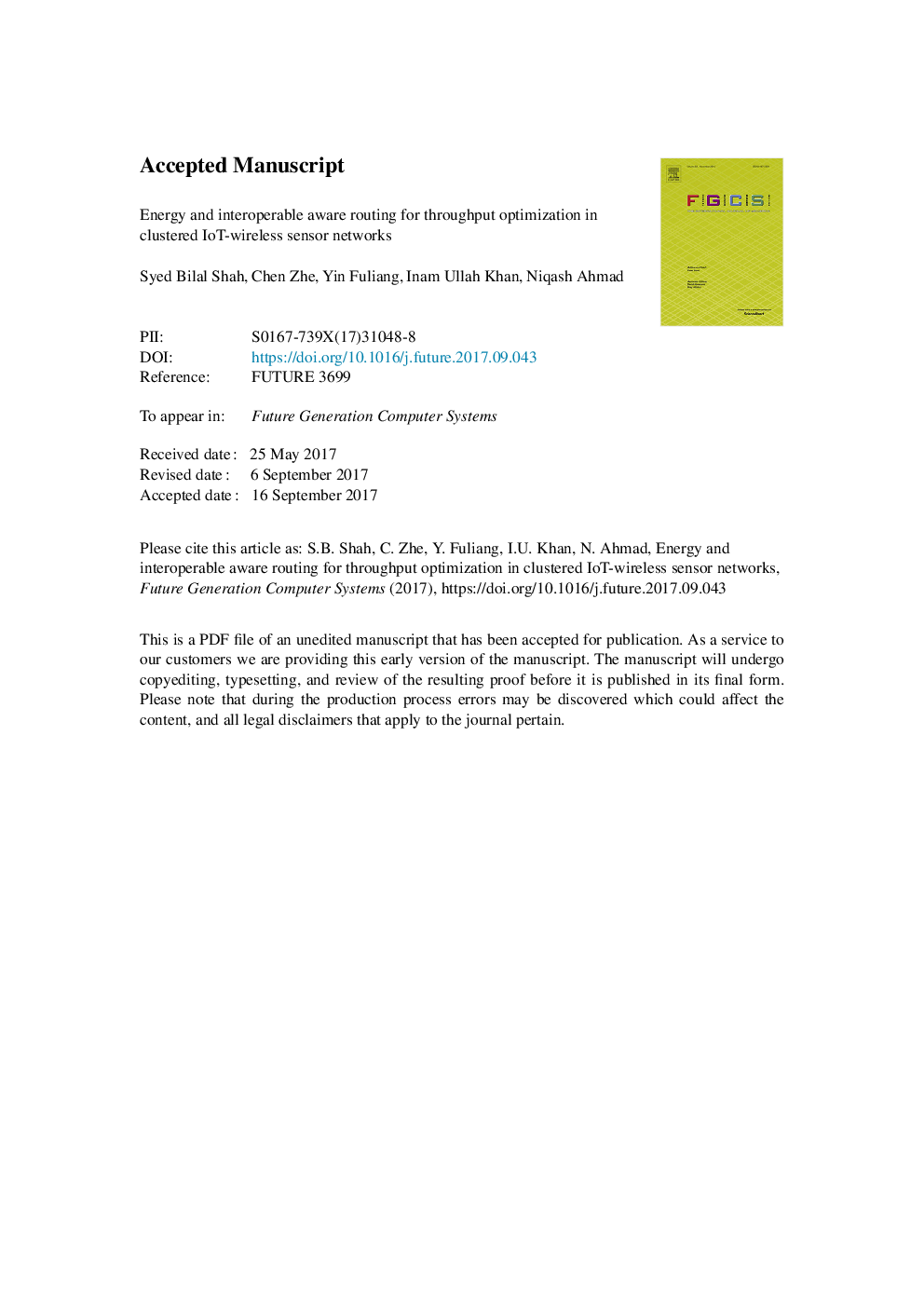| Article ID | Journal | Published Year | Pages | File Type |
|---|---|---|---|---|
| 6873282 | Future Generation Computer Systems | 2018 | 24 Pages |
Abstract
Since the nodes are battery operated and replenishment of battery is almost impossible especially when the nodes deployed at far distant and unattended areas. The extensive devices connected through Internet of Things (IoT) bring forth many challenges such as high battery power consumption, designing of smart e-health devices, construction of smart home control system, etc. However, among these challenges, network lifetime in the case of IoT embedded devices communications, battery lifetime of IoT devices, and deployment of sensor networks are the most prominent challenges exist in the current literature. Therefore, to extend the network lifetime and minimum utilization of battery, all the steps from node deployment to network architecture (in our case, we are considering clustered network architecture) and from sensing the environment to sharing the sensed data to the BS (i.e. routing) should be designed in a careful way. Decreasing the broadcasting of packets, and lessening the computation at the node level and minimizing the packet overhead play their important role in the conservation of energy that pushes toward better network throughput. In our under-discussed research work, we are in an aim to increase the network throughput by conserving the energy, especially during the routing process. Our work targets the constituent phases of cluster based aware energy routing for maximizing the throughput by decreasing the end-to-end delay, less packet drop ratio and improving network lifetime. Our strategies of customized, proactive routing, localized behavior strategies and in-network processing help in achieving our goal.
Related Topics
Physical Sciences and Engineering
Computer Science
Computational Theory and Mathematics
Authors
Syed Bilal Shah, Zhe Chen, Fuliang Yin, Inam Ullah Khan, Niqash Ahmad,
